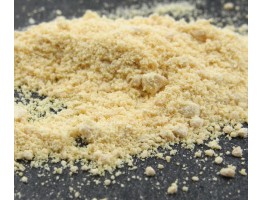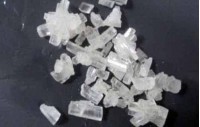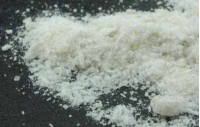
Buy Mescaline for sale online - USA vendor

- FREE shipping, 6-7 days delivery time
- Inner sending exist.
The main payment option is Bitcoin. As extra ways WU, MG.
We alwayse provide FREE samples of Top products with the main order.
Loyalty program exist, second order will be - 5%OFF
Safely work only with us! We provide - re-shipment guarantees.
Here you'll discover unused lawful items of immaculate quality.
Some time recently purchase if you don't mind make beyond any doubt that the items beneath your curiously are lawful in your country.
We do not offer a pharmaceutical items or beneath control items.
Table of Contents
-
Introduction
- Overview of 3,4,5-Trimethoxyphenethylamine (Mescaline)
- Historical and Cultural Significance
-
Chemistry
- Structural Composition and Analogues
- Pharmacological Effects
-
Physical Effects
- Stimulation
- Spontaneous Bodily Sensations
- Physical Euphoria
- Nausea and Other Physical Effects
-
Visual Effects
- Enhancements and Distortions
- Visual Geometry and Hallucinatory States
-
Cognitive Effects
- Analysis and Cognitive Enhancement
- Emotional and Social Effects
-
Dosage
- Threshold, Light, Common, Strong, Heavy Doses
-
Toxicity and Harm Potential
- Health Effects and Safety Considerations
- Harm Reduction Practices
- Dependence and Abuse Potential
- Dangerous Interactions
-
Legal Status
- International Regulations
- Specific Country Regulations
3,4,5-Trimethoxyphenethylamine: An Overview
Introduction to Mescaline
3,4,5-Trimethoxyphenethylamine, also known as mescaline, is a naturally occurring classical psychedelic substance that belongs to the phenethylamine class. Mescaline is found in various cacti, including the peyote cactus (Lophophora williamsii), the San Pedro cactus (Echinopsis pachanoi), and the Peruvian Torch cactus (Echinopsis peruviana). Additionally, it is present in some plants of the Cactaceae and Fabaceae families. As one of the oldest known hallucinogens, mescaline is the parent compound of psychedelic phenethylamines, one of the two primary subclasses of psychedelic compounds, the other being tryptamines.
Historical Context and Discovery
Mescaline was first isolated from the peyote cactus in 1897 by German chemist Arthur Heffter. The peyote cactus has been used in rituals for at least 5,700 years by Native Americans in Mexico. Other mescaline-containing cacti, such as the San Pedro cactus, have also been used historically across South America, from Peru to Ecuador. Mescaline played a significant role in the work of American chemist Alexander Shulgin, who used it as a starting point to synthesize numerous novel psychedelic compounds. Shulgin documented his findings in his 1991 book, "PiHKAL" (Phenethylamines I Have Known and Loved).
Chemistry
Mescaline, or 3,4,5-trimethoxyphenethylamine, is a substituted phenethylamine. It features a phenyl ring attached to an amino group (-NH2) via an ethyl chain. The compound has three methoxy functional groups (CH3O-) attached to the R3, R4, and R5 positions of the phenyl ring.
Mescaline has several structural analogs, including proscaline, escaline, and methallylescaline. It is also the synthetic precursor to the 2C-x and DOx families of psychedelic phenethylamines. Compounds in the 2C-x family, such as 2C-B (bromomescaline), produce mescaline-like effects with greater potency and shorter duration. In contrast, DOx compounds (e.g., DOM, DOB) have extended durations and more pronounced stimulant effects.
Pharmacology
Mescaline acts similarly to other psychedelic agents by binding to and activating serotonin receptors, particularly the 5-HT2A receptor. Although the precise mechanism through which 5-HT2A receptor activation leads to psychedelic experiences is not fully understood, it likely involves neuronal excitation in the prefrontal cortex. Mescaline also binds to and activates the serotonin 5-HT2C receptor.
Subjective Effects
The effects of mescaline, as reported by users, include open and closed-eye visuals, time distortion, enhanced introspection, conceptual thinking, euphoria, and ego loss. These effects can vary significantly and are influenced by the dosage. While higher doses are more likely to induce the full spectrum of effects, they also increase the risk of adverse reactions, such as anxiety, paranoia, delusions, and psychosis. Mescaline is generally considered one of the more gentle and euphoric psychedelics, emphasizing bodily and tactile sensations more than tryptamines like psilocybin or DMT.
Safety and Harm Reduction
Although mescaline has not been proven to be physiologically toxic or addictive, users should exercise caution. Adverse psychological reactions can occur, particularly in individuals predisposed to mental disorders. It is also important to note that in street markets, substances labeled as "mescaline" or "synthetic mescaline" may actually be other, potentially more dangerous psychedelics like 2C-x, DOx, or 25x-NBOMe. Harm reduction practices are highly advised when using mescaline.
Dosage
Mescaline dosages vary depending on the desired intensity of the experience. Below is a guide to mescaline dosages:
Threshold
- Dosage: 50 mg
At this dosage, users typically experience very mild effects. It is considered the minimal dose at which mescaline's effects begin to be noticeable.
Light
- Dosage: 50 - 200 mg
Light dosages produce subtle effects, including mild visual and perceptual changes, slight euphoria, and gentle introspection.
Common
- Dosage: 200 - 400 mg
Common dosages provide a more pronounced psychedelic experience with noticeable visuals, significant mood enhancement, deeper introspection, and altered thought processes.
Strong
- Dosage: 400 - 800 mg
Strong dosages result in intense psychedelic effects, including vivid visual hallucinations, profound changes in perception and thought, and strong emotional experiences.
Heavy
- Dosage: 800 mg+
Heavy dosages lead to extremely powerful and overwhelming psychedelic experiences. Users may experience complete ego dissolution, intense visual and auditory hallucinations, and deep spiritual or mystical experiences. This level of dosage is generally not recommended for inexperienced users due to the potential for challenging psychological effects.
Physical Effects
Stimulation
Mescaline is noted for its energetic and stimulating effects, promoting activities like running, walking, and dancing. This stimulation is typically gentle and natural compared to more sedating psychedelics like psilocin.
Spontaneous Bodily Sensations
The "body high" from mescaline includes intense sensations such as a warm, soft glow over the body, similar to MDMA, and a sharp, cold electric tingling sensation akin to LSD. Additionally, an energetic pins-and-needles sensation that shifts and tingles in waves may also be experienced, reminiscent of 2C-B.
Physical Euphoria
Compared to other psychedelics, mescaline is known for inducing physical euphoria, reminiscent of phenethylamines like MDA.
Nausea
Nausea is a common side effect, particularly at moderate to high doses. It may subside after vomiting or gradually diminish as the peak effects set in.
Increased Salivation
While less pronounced than with tryptamines, increased salivation can occur with mescaline, typically not persisting throughout the experience.
Tactile Enhancement
Users consistently report enhanced tactile sensations at moderate levels. At higher doses, there may be an intense awareness of every nerve ending in the body simultaneously.
Appetite Suppression
Bodily Control Enhancement Stamina enhancement Olfactory Enhancement Frequent urination Increased heart rate Increased libido Muscle contractions Pupil dilation Seizure - Although rare, seizures may occur in predisposed individuals, especially under physically taxing conditions such as dehydration, fatigue, malnutrition, or overheating.
Toxicity and Harm Potential
Health Effects and Safety Considerations
The scientific exploration of the toxicity and long-term health implications of recreational mescaline use remains limited. To date, no fatal overdoses attributed to mescaline have been documented in scientific literature. Anecdotal reports suggest that trying mescaline at low to moderate doses without combining it with other substances does not typically lead to negative health effects, though caution is always advised.
Harm Reduction Practices
It is strongly recommended to practice harm reduction strategies when using mescaline or any other psychedelic substance. This includes starting with a low dose, being aware of one's physical and mental state, and ensuring a safe and supportive environment.
Dependence and Abuse Potential
Mescaline is not considered habit-forming, and users often experience a decrease in desire to use it over time. Immediate tolerance to mescaline develops quickly after ingestion, typically requiring about 3 days for tolerance levels to halve and approximately 7 days to return to baseline if no further consumption occurs. Mescaline also induces cross-tolerance with other psychedelics, meaning their effects are diminished after mescaline use.
Dangerous Interactions
Combining mescaline with certain substances can be dangerous and potentially life-threatening. Known interactions include:
- 5-MeO-xxT: Unpredictable interactions with the 5-MeO class of tryptamines.
- Cannabis: Enhances and alters the psychedelic effects unpredictably.
- Amphetamines and Cocaine: Increases risk of heightened anxiety and thought loops.
- MAOIs (Monoamine oxidase inhibitors): Can lead to severe reactions.
- Tramadol: May increase the risk of seizures due to lowered seizure threshold.
- ΑMT (Alpha-methyltryptamine): Potential for dangerous interactions.
Legal Status
Internationally, mescaline is classified as a Schedule I controlled substance under the United Nations 1971 Convention on Psychotropic Substances. This classification restricts its international trade to scientific research and medical use. Natural sources of mescaline, like peyote, are often exempt from these regulations.
- Australia: Schedule 9 prohibited substance, illegal in some states.
- Brazil: Illegal to possess, produce, and sell.
- Canada: Classified as a Schedule III drug, with exceptions for peyote.
- Germany: Controlled under the Narcotics Act, illegal without proper authorization.
- The Netherlands: Raw mescaline and dried cacti illegal, peyote exempt.
- Switzerland: Listed as a controlled substance under specific regulations.
- United Kingdom: Purified mescaline powder is a Class A drug; dried cactus legal.
- United States: Classified as a Schedule I hallucinogen, with exemptions for religious and research purposes.
These legal statuses vary by region and are subject to change based on legislative developments and interpretations.
In conclusion, while mescaline is not inherently toxic in moderate doses and does not lead to physical dependence, responsible use and awareness of legal and health implications are crucial for safe experiences.
FAQ (Frequently Asked Questions)
Is mescaline safe to use?
Mescaline is generally considered safe when used responsibly at appropriate doses. It is not known to cause fatal overdoses, but users should be aware of potential risks such as nausea, psychological distress, and dangerous interactions with other substances.
Can mescaline cause addiction?
Mescaline is not considered addictive. In fact, many users report a decreased desire to use it after initial experiences. It does, however, induce tolerance quickly, meaning higher doses are required for similar effects shortly after use.
What are the legal implications of using mescaline?
Internationally, mescaline is classified as a Schedule I controlled substance under the UN 1971 Convention on Psychotropic Substances. This restricts its use to scientific research and medical contexts. Legal status varies by country, with exemptions for religious and cultural use in some regions.
How should mescaline be consumed?
Mescaline is typically consumed by ingesting dried cactus buttons or extracted pure mescaline. Preparation methods include chewing the dried buttons, brewing them into tea, or encapsulating powdered mescaline for ingestion. Dosage should be carefully measured to avoid adverse effects.
What are some potential side effects of mescaline?
Common side effects include nausea, increased heart rate, visual and auditory distortions, and altered perception of time. More severe reactions such as anxiety, paranoia, or psychosis can occur, particularly in individuals predisposed to mental health issues.
How can I reduce the risks associated with mescaline use?
Practice harm reduction strategies such as starting with a low dose, ensuring a safe and comfortable environment, and avoiding combining mescaline with other substances without thorough research. Seek guidance from experienced users or healthcare professionals if unsure.
Can mescaline be detected in drug tests?
Standard drug tests typically do not screen for mescaline. However, specialized tests may detect its presence if specifically targeted.
How long do the effects of mescaline last?
The effects of mescaline can vary but generally last between 8 to 12 hours, depending on dosage and individual metabolism. Peak effects are usually experienced within the first 3 to 5 hours after ingestion.
Is there a risk of hallucinations or psychosis with mescaline?
Mescaline can induce hallucinations and altered states of consciousness, which may be intense or unsettling for some individuals. Predisposition to mental health conditions such as schizophrenia or bipolar disorder may increase the risk of experiencing psychotic episodes.
These FAQs provide concise answers to common inquiries about mescaline, covering its effects, risks, and legal considerations.
100g $690
500g $1200
1kg $1590
1kg $1590
1kg $1590
100mg $840
1kg $1590
1kg $1690
100g $390
100g $510
500g $1199
1kg $1590










